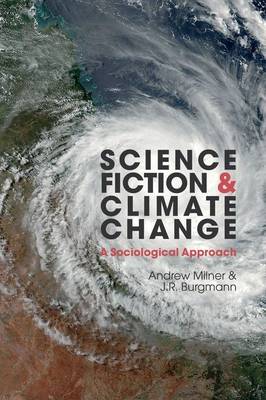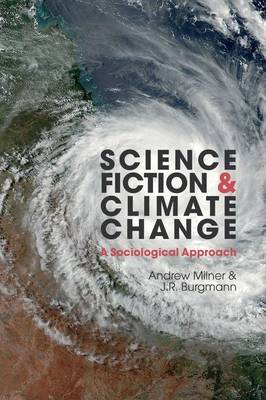
- Retrait gratuit dans votre magasin Club
- 7.000.000 titres dans notre catalogue
- Payer en toute sécurité
- Toujours un magasin près de chez vous
- Retrait gratuit dans votre magasin Club
- 7.000.0000 titres dans notre catalogue
- Payer en toute sécurité
- Toujours un magasin près de chez vous
Description
An Open Access edition of this book is available on the Liverpool University Press website and through Knowledge Unlatched.
Shortlisted for the British Science Fiction Association Best Non-Fiction Award 2020
Shortlisted for the Locus Science Fiction Foundation Non-Fiction Award 2021
Despite the occasional upsurge of climate change scepticism amongst Anglophone conservative politicians and journalists, there is still a near-consensus amongst climate scientists that current levels of atmospheric greenhouse gas are sufficient to alter global weather patterns to disastrous effect. The resultant climate crisis is simultaneously both a natural and a socio-cultural phenomenon and in this book Milner and Burgmann argue that science fiction occupies a critical location within this nature/culture nexus. Science Fiction and Climate Change takes as its subject matter what Daniel Bloom famously dubbed 'cli-fi'. It does not, however, attempt to impose a prescriptively environmentalist aesthetic on this sub-genre. Rather, it seeks to explain how a genre defined in relation to science finds itself obliged to produce fictional responses to the problems actually thrown up by contemporary scientific research. Milner and Burgmann adopt a historically and geographically comparatist framework, analysing print and audio-visual texts drawn from a number of different contexts, especially Australia, Britain, Canada, China, Finland, France, Germany, Japan and the United States. Inspired by Williams's cultural materialism, Bourdieu's sociology of culture and Moretti's version of world systems theory, the book builds on Milner's own Locating Science Fiction to produce a powerfully persuasive study in the sociology of literature.
Spécifications
Parties prenantes
- Auteur(s) :
- Editeur:
Contenu
- Nombre de pages :
- 248
- Langue:
- Anglais
- Collection :
- Tome:
- n° 63
Caractéristiques
- EAN:
- 9781789621723
- Date de parution :
- 27-03-20
- Format:
- Livre relié
- Format numérique:
- Genaaid
- Dimensions :
- 163 mm x 236 mm
- Poids :
- 517 g

Les avis
Nous publions uniquement les avis qui respectent les conditions requises. Consultez nos conditions pour les avis.






